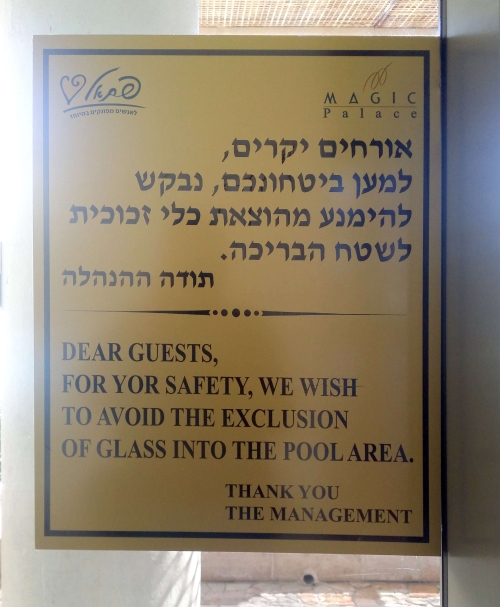Perhaps you've heard the saying, 'gets lost in translation'. This saying often--but not always--expresses a common problem that results from trying to translate words of one language into another language. If you've ever used a translation application on your computer or iphone, you may recognize the problem.
For example, I once received an email here in Israel, written in Hebrew by the sender. The writer was sending along a change in times for a community event. The sender declared in his email that this was a time-change he didn't like. However, he added, since he (the sender) had been delegated the task of sending out the time-change, he chose, despite his opposition, to fulfill his responsibility.
Nevertheless, he couldn't resist adding his own afterthought. He added something like, 'don't get mad at me for this time change. I'm just a conduit here'--meaning, 'don't shoot me over this change; I'm just the messenger'.
Because the email had been written in Hebrew, I wasn't sure I understood everything he had written. I didn't recognize what I thought was the key word in his afterthought ('conduit'). I had never seen that word in Hebrew before (there are lots of Hebrew words I've never seen before). So I clicked on a 'translate' icon. Immediately, the message was translated into English.
The translation made no sense. Yes, the time change was what I had thought it was. But the afterthought was nonsensical. It had been translated into, 'don't get mad at me for this time change. I'm just a pipe'.
Huh?
It seems that the translation application I was using had translated a Hebrew word whose primary meaning is 'pipe' and whose secondary meaning is 'conduit'. The app had used the primary meaning for this translation. Apparently, this particular app doesn't account for how context can affect the meaning of a word.
The application translated the word into English, all right. But the definition chosen created nonsense.
One thing I concluded from this was, 'you get what pay for'. The app is a free app.
Of course, one wonders how that saying, 'you get what you pay for' would translate. Would the translation read, 'you get what you buy', or, 'you receive what you purchase'?
Probably.
I tell you about this curious translation quirk because I recently found another example of 'gets lost in translation'. I found it on our local English-language internet community 'information board'. It was posted by the information-board director, Jacob Richman, who--by the way--does a magnificent job for our entire local Anglo community.
He posted a photo and credits it to one Yosh Mantinband (sic), whom I don't know. It's a picture of a sign found at a hotel in Eilat, a popular resort town.
The sign is supposed to say, "dear guests, for your safety, we ask you to avoid taking glassware into the pool area". But the entire point of that message got, well, lost in translation:

Dear reader, beware of translations. This translation reverses the Hebrew-language request to avoid glass in the pool area. It changes that request to ask that guests avoid excluding glass from the pool area.
Yes, sometimes meaning does get very, very lost in translation.
Yes, sometimes meaning does get very, very lost in translation.
No comments:
Post a Comment